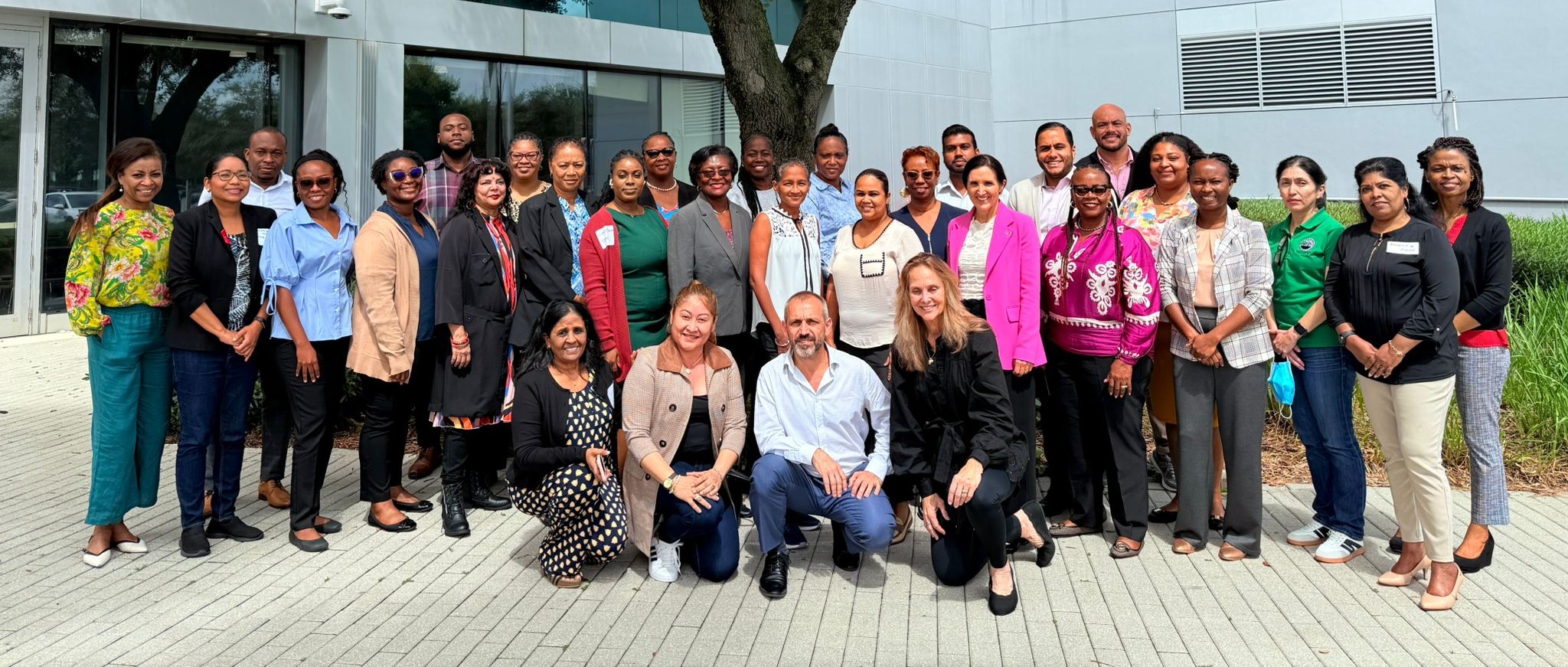
PANCAP Empowers Regional Clinicians with Motivational Interviewing Training to Advance HIV Response
PANCAP Coordinating Unit, CARICOM Secretariat, Georgetown, September 22, 2005 – The Pan-Caribbean Partnership against HIV and AIDS (PANCAP) has successfully concluded a landmark Motivational Interviewing (MI) training programme at the University of Miami Miller School of Medicine. Held from September 17 to 19, the intensive course equipped regional healthcare providers with advanced MI techniques to strengthen patient engagement and accelerate the Caribbean’s progress toward ending AIDS as a public health threat.
The programme, building on the success of a prior learning journey to Amsterdam earlier in the year, provided participants with a comprehensive, in-depth exploration of MI, a patient-centred communication technique proven to enhance recruitment and retention in HIV prevention and treatment. Participants explored the spirit and process of MI, from engaging challenging patients and evoking change talk to concrete planning for behaviour change.
The curriculum blended theory with practical, hands-on demonstrations and role-playing sessions, ensuring participants could immediately integrate the knowledge and skills learned into their respective clinics and community settings.
“This training represents a transformative step in our regional HIV response,” said Dr. Wendy Telgt Emanuelson, Director of the PANCAP Coordinating Unit (PCU). “By equipping healthcare providers with motivational interviewing skills, we are fostering deeper trust between clinicians and patients. This approach will not only improve adherence to PrEP and treatment but also empower individuals to take ownership of their health, bringing us closer to achieving the 95-95-95 targets and ending AIDS as a public health threat in the Caribbean.” The training also focused on the latest scientific evidence and global guidelines, ensuring participants left with both the requisite communication skills and technical knowledge to provide cutting-edge care.
“Participants left motivated and equipped to cascade these skills within their health systems,” Dr. Emanuelson added. “We have now empowered a core group of champions who will return to their respective countries not just to practice these skills, but to cascade them, creating a multiplier effect that will strengthen our entire health system’s response.”
Dr. Shanti Singh Anthony, Knowledge Management Coordinator at the PCU, emphasised the training’s strategic importance: “The proficiency our clinicians demonstrated in integrating MI into their consultation process will create ripple effects across health systems. This isn’t just about individual skills, it’s about building a more compassionate, effective HIV response that leaves no one behind.”
The training programme represents PANCAP’s continued commitment to strengthening regional capacity and accelerating progress toward reaching the 95-95-95 targets through innovative, evidence-based approaches and aligns with the forthcoming Caribbean Regional Strategic Framework (CRSF) 2026–2030, which prioritises innovation, health system integration, and community-led solution
PANCAP extends sincere gratitude to the faculty and staff of the University of Miami Miller School of Medicine, the Pan-American Health Organization, and The Global Fund for making this training possible.
ENDS
About The University of Miami Leonard M. Miller School of Medicine
The University of Miami Leonard M. Miller School of Medicine was established in 1952 as Florida’s first medical school, with just four faculty members and 28 medical students in its inaugural class. Since then, the Miller School has grown to become an internationally recognized institution with more than 1,700 faculty members, 48 centers and institutes, 29 clinical and basic science departments, and an average annual class cohort of more than 200 students.
As one of the top National Institutes of Health-funded medical schools in Florida, the Miller School is at the vanguard of cutting-edge discoveries. From our leading genetics/genomics program to our contributions in the fields of cellular therapeutics, cancer care, immune therapies, and much more, the Miller School is at the forefront of advances in translational medicine and clinical care.
WHAT IS PANCAP?
PANCAP is a Caribbean regional partnership of governments, regional civil society organisations, regional institutions and organisations, bilateral and multilateral agencies and contributing donor partners established on 14 February 2001. PANCAP provides a structured and unified approach to the Caribbean’s response to the HIV epidemic, and coordinates the response through the Caribbean Regional Strategic Framework on HIV and AIDS to maximise efficient use of resources and increase impact, mobilise resources and build the capacity of partners.
What are the Global AIDS Strategy 2021–2026 targets and commitments?
If targets and commitments in the strategy are achieved:
- The number of people who newly acquire HIV will decrease from 1.7 million in 2019 to less than 370 000 by 2025
- The number of people dying from AIDS-related illnesses will decrease from 690 000 in 2019 to less than 250 000 in 2025.
- The goal of eliminating new HIV infections among children will see the number of new HIV infections drop from 150,000 in 2019 to less than 22,000 in 2025.
What are the 95-95-95 Targets for ending AIDS?
- 95% of People Living with HIV know their HIV status;
- 95% of people who know their status on treatment; and
- 95% of people on treatment with suppressed viral loads.
HELPFUL LINKS:
Global AIDS Strategy 2021–2026, End Inequalities, End AIDS
https://pancap.org/pancap-documents/global-aids-strategy-2021-2026-end-inequalities-end-aids/
Caribbean Regional Strategic Framework on HIV and AIDS (CRSF) 2019-2025
https://pancap.org/pancap-documents/caribbean-regional-strategic-framework-2019-2025/
